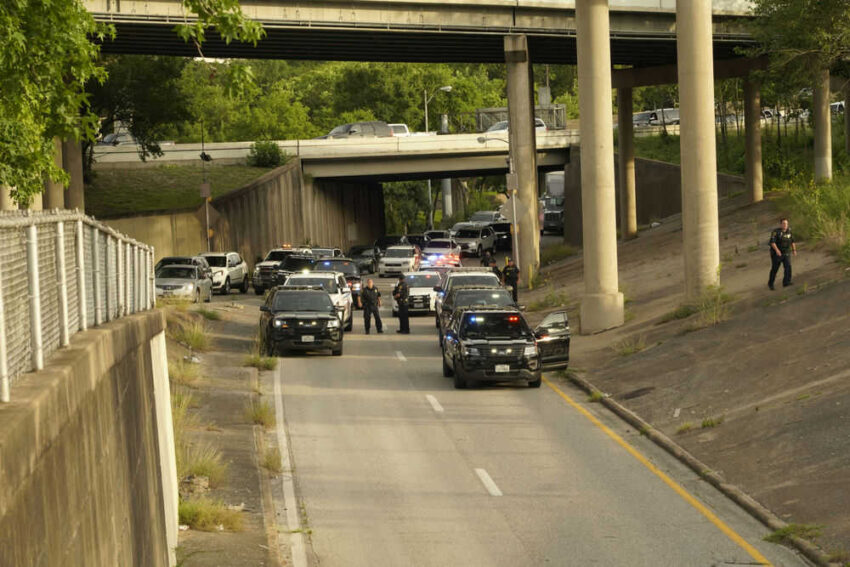(LibertySociety.com) – Political rage spilled into the streets of Buenos Aires when rocks flew at President Javier Milei’s convoy, exposing the raw nerves, and real risks, inside Argentina’s high-stakes experiment with libertarian rule.
Story Snapshot
- President Javier Milei’s caravan attacked by rock-throwing protesters in Buenos Aires province, a bastion of opposition.
- The incident spotlights deepening polarization and rising volatility under Milei’s radical economic shakeup.
- Security for government officials is now a daily chess match as unrest simmers, especially in traditional Peronist strongholds.
- Milei’s reforms face fierce resistance from unions, opposition parties, and citizens feeling the squeeze of austerity.
Political Violence Returns to Argentina’s Streets
On August 27, 2025, President Javier Milei’s campaign convoy was bombarded by rocks as it rolled through Buenos Aires province, a region that has long acted as the pulsing heart of Argentina’s left-leaning opposition. The attack didn’t result in serious injuries, but the symbolism couldn’t be missed by anyone following the country’s fraught political landscape. Buenos Aires province is densely populated and deeply rooted in the Peronist tradition, making it ground zero for demonstrations against Milei’s economic agenda.
Milei’s abrupt encounter with street-level hostility is not an isolated event. Tensions have been steadily escalating since his government began implementing sweeping reforms aimed at shrinking the state, deregulating markets, and, famously, advocating for full dollarization. The anti-establishment fervor that swept him into office now faces a counterwave, coming from unions, opposition parties, and everyday Argentines worried about job losses and vanishing safety nets.
Milei’s Radical Reform Agenda Meets Fierce Resistance
Javier Milei, described as an “anarcho-capitalist” and outspoken critic of Argentina’s political elite, won the presidency in 2023 on promises to break the cycle of economic dysfunction and political cronyism. His administration wasted no time, launching into austerity, slashing subsidies, and deregulating industries. Buenos Aires province, with its strong union presence and history of social activism, quickly became the epicenter of protest and resistance.
Reform measures have triggered strikes and mass demonstrations, with opposition leaders decrying government “repression” and urging peaceful protest. Security forces now shadow Milei’s public appearances, bracing for further unrest. The August attack marked a new threshold, a direct physical threat to a sitting president, underscoring how quickly political disagreements can devolve into street-level confrontation.
Adversaries, Alliances, and the Battle for Argentina’s Future
Milei’s inner circle, led by his sister and chief advisor Karina Milei, faces a landscape fractured by decades of economic turmoil and volatile transitions of power. The opposition, organized around Peronist parties and powerful unions, seeks to defend social programs and labor rights against the perceived threat of libertarian austerity. The relationship between the executive and legislative branches is adversarial, with frequent confrontations and a fragmented Congress complicating Milei’s reform push.
Political scientists caution that Milei’s approach, while rooted in American-style conservative values of fiscal discipline and limited government, risks deepening divisions in a society already on edge. Economists are split, some praise the commitment to break Argentina’s cycle of crisis, while others warn of spiraling social costs if unrest continues. The stakes go beyond domestic affairs; Argentina’s international image and investor confidence hang in the balance, and the outcome may ripple across Latin America’s political map.
Unrest, Uncertainty, and the Road Ahead
The rock-throwing incident has ratcheted up security concerns for Milei and his administration. No one doubts the resolve of opposition leaders or the frustrations of citizens caught in a grinding economic squeeze. The short-term impact is clear: heightened risk for officials, intensification of protests, and a surge in political rhetoric on both sides. Long-term, the volatility could destabilize Milei’s mandate and lead to legislative gridlock if unrest grows unchecked.
Residents of Buenos Aires and other opposition strongholds bear the brunt of austerity, fueling a feedback loop of protest and resistance. The government’s capacity to manage disorder without alienating moderate voters or inviting international scrutiny remains an open question. Analysts point to Argentina’s history of political violence as a warning, but also to the possibility that bold reforms, if managed with consensus, could break the cycle of economic dysfunction.
Copyright 2025, LibertySociety.com .
Click this link for the original source of this article.
Author: Editor
This content is courtesy of, and owned and copyrighted by, https://libertysociety.com and its author. This content is made available by use of the public RSS feed offered by the host site and is used for educational purposes only. If you are the author or represent the host site and would like this content removed now and in the future, please contact USSANews.com using the email address in the Contact page found in the website menu.





